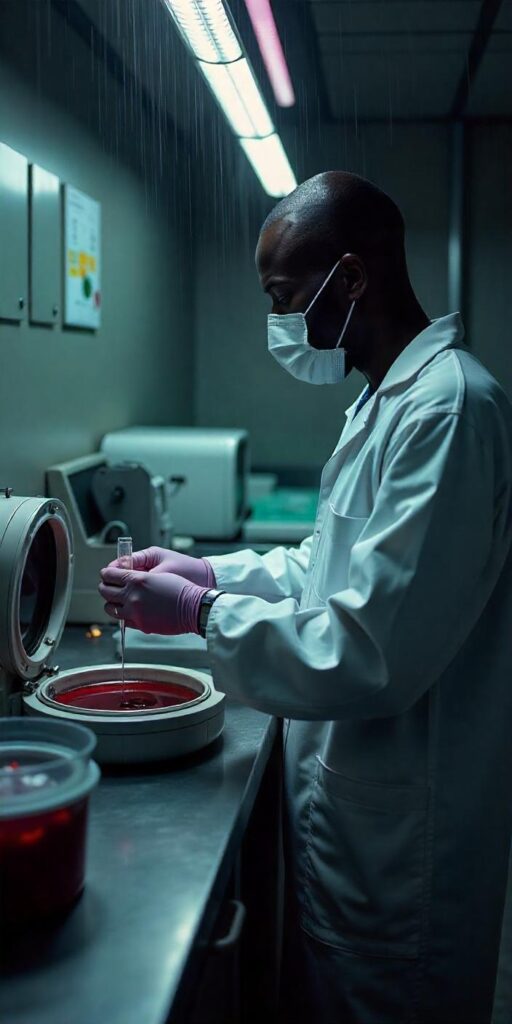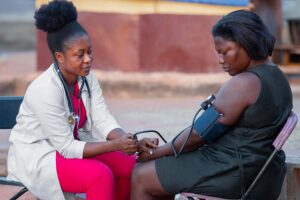Every day, blood banks play a crucial role in saving lives, but have you ever wondered what happens to your donation once it leaves your arm? Whether you’re donating blood, plasma, or even bone marrow, understanding the process can help you feel more connected to the lives you’re helping. In Nigeria, this process is a vital link in ensuring that those in need of medical care receive the resources they require.
The Lifeline of Blood Donations
Blood donation is one of the most selfless acts a person can do. However, it’s not always clear how much impact it truly has. Donating blood helps patients in emergency situations, those undergoing surgery, cancer treatments, and more. But what happens once you give?
At Oneus in Nigeria, we have streamlined this process, ensuring that every drop counts. Blood is transported to a central blood bank where it undergoes various tests to guarantee its safety and suitability for transfusion. These tests screen for diseases like HIV, Hepatitis, and syphilis, ensuring that only healthy blood is used.

The Blood Bank Process: Behind the Scenes
Once your blood donation is collected, it is processed at specialized blood plasma centers. Plasma donation is an important part of the process, as plasma is a critical component used in treating burn victims, patients with clotting disorders, and those undergoing certain therapies. Blood is separated into its components: red blood cells, platelets, plasma, and white blood cells. Each component is then used for different medical purposes.
For example, platelet donation is essential for treating cancer patients and those with blood disorders. If you’re wondering how your blood group and rhesus factor influence your donation, it’s important to know that matching the right blood group can save lives, especially in emergency situations. O-positive blood is one of the most commonly needed blood types in Nigeria, but every blood type plays a critical role.
Plasma Centers and Their Role
In Nigeria, plasma donation centers are critical hubs for providing plasma to patients in need. Donating plasma, much like donating whole blood, is essential for treating a variety of medical conditions. You might have heard of people selling plasma, but it’s important to note that the primary goal is not to profit, but to ensure a continuous, safe supply of plasma.
If you’ve ever considered selling plasma or donating, it’s important to understand the difference between selling and donating. Donating plasma helps save lives, whereas selling plasma is often associated with non-medical purposes. At Oneus, we promote genuine plasma donation to ensure the resources are directed towards those who truly need them.
Stem Cell and Bone Marrow Donations: A Rare, but Lifesaving Gift
Beyond the common blood donations, there are also stem cell donation and bone marrow donation. Stem cells and marrow are crucial for treating blood cancers like leukemia. While these donations are rarer, they are just as life-saving. As with any form of donation, the compatibility between the donor’s genotype and the patient’s needs is vital.
Umbilical Cord Blood Banking
A newer advancement in the field is umbilical cord blood banking. By preserving the blood from the umbilical cord after childbirth, stem cells can be stored for future use. Private cord blood banking allows families to store this precious resource for possible future medical treatments. While cost of cord blood banking can be a concern, it can be a lifesaving decision if the need for stem cell treatment arises.
The Need for Blood Drives and Donations in Nigeria
Nigeria, like many countries, faces significant challenges in maintaining an adequate blood supply. During emergencies, the need for blood often exceeds the availability, leading to shortages. Blood drives play a crucial role in combating this issue. By organizing local blood donation events, communities can increase awareness and ensure that hospitals always have the resources they need.
If you’re considering donating, it’s vital to know where the nearest blood donation website or plasma donation centers are located. Organizations like Oneus regularly organize donation events and maintain partnerships with local hospitals to ensure that blood and plasma donations reach the right people at the right time.
The Risks of Not Donating Blood
Not donating blood comes with risks, not just for those in need but for the community as a whole. A lack of available blood can delay treatments, surgeries, and emergency responses, leading to complications and even loss of life. By giving blood, you’re directly contributing to the health and well-being of individuals in your community and beyond.
Your Role in Saving Lives
It’s clear that giving blood, whether it’s whole blood, plasma, or even platelets, is essential to saving lives. At Oneus in Nigeria, we are committed to ensuring that every donation counts. We encourage you to participate in blood donation drives and reach out to your local plasma donation centers. Remember, you have the power to save lives with just a small act of kindness.
Give Blood, Save a Life – Book Your Donation Now!
Take action today. Book your donation now and make a tangible difference in someone’s life. Contact us at info@oneusng.com, +234 902 168 2822, or visit Oneus Nigeria. Your generosity can be the difference between life and death.
In this article, we’ve walked you through the important steps of what happens after you donate blood, the types of donations available, and how you can make a difference. By understanding the process, you’re empowered to take part and help those who need it most.




